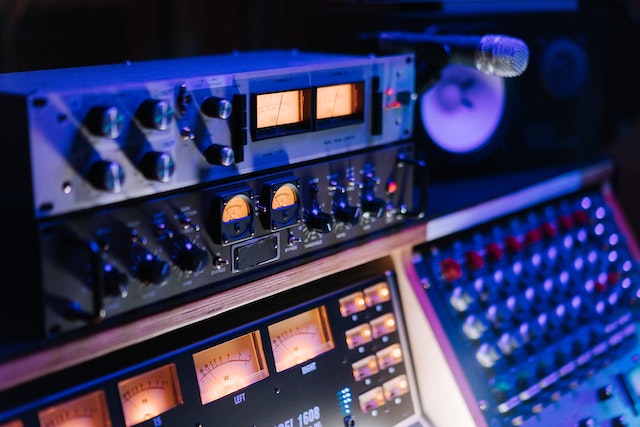Love music? Are you technical and detail-oriented? If so, audio engineering may be your calling! You’ll shape the sounds we adore in this intriguing field. Audio engineers bring music and sound to life in studios and concerts. To become an audio engineer in Australia, read on!
Audio engineering—what courses do you need?
Audio engineers record, edit, and manipulate sound. It uses powerful technology and software to capture high-quality audio for music creation, movies, television, live events, and more.
Audio engineering requires specialised training. Audio engineering or sound production bachelor’s degrees are common. These programmes cover recording techniques, mixing and mastering, sound design, acoustics theory, DAWs, signal processing, studio management, and live sound reinforcement.
Short-term workshops and online courses on specialised audio engineering topics are also available. These are perfect for those who want to learn certain skills or improve their knowledge without committing to a full-time programme.
When choosing an audio engineering course in House of Marley Australia, consider curriculum content (whether it covers both theoretical concepts and practical application), faculty expertise (industry experience is valuable), hands-on training with industry-standard equipment/software, internship/placement opportunities, and networking with industry professionals.
As an aspiring Australian audio engineer, relevant educational qualifications will give you a solid technical foundation and industry expertise that will boost your employment possibilities!
Skills needed
Specific knowledge is needed for audio engineering. Technical prowess is essential, but additional abilities could make you stand out.
Prior knowledge of sound principles and audio equipment is required. This includes being aware of signal flow, recording software, mixing boards, and microphones. Additionally, any technical issues must be resolved very away.
To get started in this field, what kinds of tools do you need?
Starting an audio engineering career requires the correct gear. Here are some key instruments every aspiring audio engineer should consider buying.Firstly, good headphones are essential. These let you accurately monitor and analyse sound while mixing and editing. Headphones with good frequency response and isolation will accurately reproduce audio.
You’ll need headphones and studio monitors, quality audio production speakers. Studio monitors offer precise mixing adjustments since they accurately portray sound.Audio engineers need DAW software too. This virtual recording studio lets you record, edit, and mix music and other audio.
For clean vocal and instrument recordings, get excellent microphones. Studios utilise condenser microphones because they capture precise sounds clearly.Remember cables! Balanced XLR and quarter-inch cables let you connect all your gear without signal degradation.
These are just the basics; your audio engineering speciality, such as live sound reinforcement or post-production, may require additional gear. Before buying, evaluate your demands and budget to customise your equipment list.Start building your toolkit because trustworthy equipment is essential to a successful audio engineering profession!
Audio fundamentals
Start with audio engineering classes. Find reputable House of Marley Australia audio engineering schools.Work after graduation. Intern at recording studios, music venues, radio stations, film production companies, or other sound production companies. This hands-on training improves technical skills and industry relationships.
Audio engineers need networking. Attend industry conventions and workshops. Join audio engineering forums and organisations for networking and updates.Successful audio engineers build portfolios. Start with personal projects or sound production for young musicians or films. Your diverse portfolio will attract clients and companies.
Audio engineers need good gear. Start with condenser and dynamic microphones, headphones, monitors, DAW, cables, and stands. As you progress in your career, consider additional equipment.
Always learn! Audio engineering evolves. Attend software and trend workshops or online training.Audio engineering requires perseverance, creativity, passion for music/sound production, and attention to detail.Creating captivating soundscapes is hard work, but worth it.


